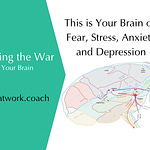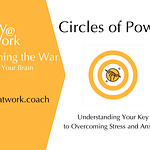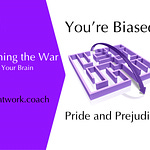Motivation is chemistry. That feeling you call motivation is to do with the dopamine in your brain, specifically the increase in dopamine in your “nucleus accumbens” is the brain’s feedback for predicting rewards. Dopamine is known as a neurochemical of pleasure, and sure, dopamine makes you feel good, so why can we also get a spike of motivation in times of great stress? Indeed, why are some people motivated to jump off suspension bridges?
Dopamine is the neurochemical associated with pleasure but its real role is in motivation[/caption] The role of dopamine goes beyond our feelings of pleasure; it performs its task before we obtain the rewards. Dopamine’s actual job is to encourage us to act to achieve or avoid something.
To act or to avoid?
Motivation can be encouragement to act or to run away Many successful golf players (and business leaders) are motivated by their dissatisfaction with their performance. It can be a very powerful motivator. You would expect someone who is thus motivated to improve their game to be similarly motivated in other aspects of their life. Do you see a golf course as a series of obstacles to be avoided, or do you see the fairways and greens as the thing to hit. There are a few people who aim for the obstacles because they excel at the tricky shots – most, however, find themselves in the obstacles due to misfortune… or were they actually responsible? For most people, the self-directed anger resulting from dissatisfaction is not a positive state to be in. If you condemn yourself for playing poorly and use self-talk phrase such as “I should have…” Or yelling (at yourself or outwardly) your self-disgust such as “useless idiot” and perhaps more colourful phrasing – you are doomed to repeat it. Not only will you repeat the ‘error’, but you are also physically hurting yourself – self-condemnation causes self-directed anger causes stress causes physical distress causes physical sickness and, for many, heart failure. It’s a little as if your heart decides that’s it’s had enough of your inward abuse and is desperately trying to communicate your need to stop doing it. If you’ve had a heart attack or stroke you’ve probably completely reassessed how you live your life – and sought more tranquility, less stressful behaviours – in some cases avoiding the major contributors to your previously high-stress levels – work and/or golf.
Driving a car often brings out the worst in our character. Some people don’t realise that this is what they are like. The way you drive your car is often a good indicator of your style. How angry do you get when someone cuts into the queue in front of you? When you pull up to the red traffic light, do you swerve over to the other lane to be at the front of the queue? When motoring along are you more concerned about getting somewhere quickly, or more concerned with the traffic around you? Back to golf. When you stand at the tee, what do you focus your attention on? Your target? Avoiding the trees/bunkers/water/rough? I hope the former by now if you’ve been with me all this time. What you focus on is what you’ll get. Motivation is a multi-faceted phenomenon. In large part, motivation is about the satisfaction of values held. It is the result of using particular personal resources towards a specific goal that satisfies a value or value held by that individual. Connecting any of these three in any order, resources, values and outcome creates the feeling of motivation as the nucleus accumbens anticipates the reward for the price you are prepared to pay. In smaller part, though often the critical component, is encouragement to achieve a goal. Encouragement to act or avoid
Encouragement is the eager anticipation of doing something fearful It is worth spending some time here on what we mean by encouragement. The word has ‘courage’ at its root. Thus, to encourage is to develop, enhance or build courage. Courage, you’ll remember, is not the absence of fear but the continuation to do














Share this post